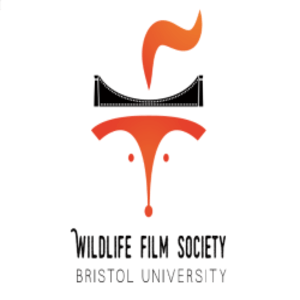If you’re a new undergraduate reading this, then first off, congratulations on getting into Bristol! A big part of university life is the clubs and societies you can get involved with. There’s a huge range of them, and you can find full details of societies at the Bristol Students’ Union page. Joining university isn’t easy for anyone, but societies can help the transition – they’re a great way to meet new people, pursue your hobbies, or just try something completely new. Keep an eye out for freshers fair, where you can walk around and chat with the members of any societies you’re interested in (plus, there’s free food). With all that in mind, we’ve asked current students to recommend their favourite societies that are relevant to Biology and Zoology students!
Bristol University Conservation Group
£3 membership for a year
Most of you are probably already aware that we are having a tremendous impact on Earth, including far-reaching issues such as global warming and plastic pollution, all the way to motorboat noise pollution affecting cognitive learning in fish. Often these issues can seem overwhelming, but if you want to play your part in local conservation, then you should really consider the Bristol University Conservation Group.
The society spends weekends on reserves in and around Bristol, helping to conserve UK’s biodiversity, for example, by removing invasive species to allow native species to thrive. This is hugely important, as UK’s nature is not in great shape – by joining the society, you can help conserve UK’s declining biodiversity! Not only this, as the society’s President and 3rd-year biologist, Lucy Bell, told me, but it’s also “a great way for students of Biology and Zoology to get practical experience of some of the problems that we learn about in lectures and labs”. Indeed, in 1st year you’ll likely have a lab discussion about the impacts of invasive species – the society can complement your studies and aid your learning.
If you take the conservation unit in 2nd year, Professor Jane Memmott will tell you about how incredibly beneficial nature is to our wellbeing, including our mental health. This may seem obvious, but it’s pretty easy to spend the entire freshers week inside, drinking and sleeping – it’s important to get outside too! Owen Iredale, 3rd-year biologist and the Tools and Safety Officer, has “found the conservation group a great way to get out into the countryside”, and has helped “conserve a range of interesting wildlife habitats”. Starting at university is a nerve-racking experience for everyone. The Conservation Group, however, as Owen said, is a “super friendly and relaxed society, so it’s a great way for nervous Biology or Zoology freshers to meet other people”.
£3 membership, or £6 for a joint membership with Roots and Shoots Society (a primate conservation group).
The Ape Alliance Society is another important group dedicated to conservation. As the name suggests, their focus is on Great Ape conservation, specifically raising awareness about the challenges they face, and funding conservation efforts. The society itself is fairly small and tight-knit, so you can make a big difference from within, as Rosie Street (President and 3rd-year biologist) told me. “During the time I have been involved with Ape Alliance, we have run educational workshops in local schools, abseiled down the Avon Gorge in gorilla costumes and organised a showing of King Kong used a pedal-powered cinema, among many other crazy events.” The showing of King Kong raised over £700 for ape conservation, which is incredible for one night. As Rosie said, you can really make a difference with this society -“if you care about animal welfare, the palm oil problem, the loss of endangered species, and are interested in being involved in some wacky activities with some like-minded people then this is the society for you”.
University of Bristol Underwater Club (UBUC)
For a new diver, approximately £260 to qualify: Open Water qualification, personal gear, UBUC and BSAC membership. You can apply for a hardship fund to get up to £100 to help with more pricey societies: www.bristolsu.org.uk/societies-sport/activity-hardship-fund
Many biologists I know are hoping to pursue marine biology as a career, and if you’ve seen Blue Planet 2 then you can understand why. As Lois Flounders, President and 3rd-year zoologist put it, “as biologists and zoologists we should all be enthusiastic to explore and protect the marine world”. If you agree, then the university’s scuba diving society, UBUC, “provides the perfect opportunity to do this with a very sociable and welcoming society.” It’s open to existing divers and complete beginners – they run a taster session during freshers for anyone who wants to give it a go.
If you do join as a beginner, you’ll become a qualified diver over the course of a few months, learning in pool sessions, and doing your qualifying dives on weekend trips – this is a great excuse to get away to beautiful places like Cornwall for a few days with some great people. Lois also highlighted other courses they run too, such as Seasearch, a citizen science project run by the Marine Conservation Society!
Aside from learning to scuba dive, it’s one of the larger societies, as it also attracts ex-students and divers from outside university. You’ll find them at the pub every Tuesday, with socials playing a big part of the society – the highlight being the boat bar crawl. UBUC is a great way to meet students both of similar ages, and across the year groups. Biologists make up a large part of the membership too, so it’s a good way to meet fellow course members!
£3 membership for a year
Dinosoc is the university’s Palaeontology society. Luke Cadd, Social Secretary and 4th-year Biologist, was quick to recommend it, as it’s “been an amazing place to meet new people who are interested in all things fossil related. It is one of the only societies here at Bristol where I have felt part of a family, which is helped by its rather small size, but also the friendliness and acceptance of everybody who is involved”.
The society puts on a lot of events, for example, field trips, pub nights, and barbeques. You can see some of the beautiful places they visit by taking a look at their gallery here. They also have talks from some of the researchers here in Bristol who have published some fascinating findings on dinosaurs! Luke recommends it to anyone “interested in something a little different”, but also for the social side of things; “not everyone that comes is into fossils, but they love the atmosphere and the people”. So, if you’re interested in fossils, or just want to try something new with some great people, then definitely check it out!
Wildlife Film Society
£5 membership for a year; discounted and free tickets to events
The Wildlife Film Society is fantastic for any budding wildlife filmmakers, or just those who love watching nature documentaries, as Siwan Davies Busby (President and 3rd-year biologist) describes. “Since joining the society in the first year I’ve had the opportunity to attend talks by, and meet, people such as Elizabeth White, George McGavin and even the incredible Sir David Attenborough! The society has given me access to valuable knowledge about the industry and has even given me the opportunity to produce a small natural history documentary series. If you’re not interested in entering the wildlife filmmaking industry, there are also tonnes of opportunities to watch great documentaries from both indie film companies and the BBC. We also have a wide range of other events from tours of the BBC Natural History Unit to camera equipment tutorials. Make sure to get your membership and come along to our events!”
As Siwan mentioned, they have put on some really great events, and the tickets are often free or heavily discounted. One of the highlights was definitely Chris Packham interviewing Sir David Attenborough about some of the conservation issues we face. A producer of Spy in the Wild, Philip Dalton, also gave a great talk and brought some of their high-tech animal cameras down for people to have a go on – there are loads of events throughout the year you won’t want to miss!
Written by Ben Cobb (year 3 Zoology BSc)






